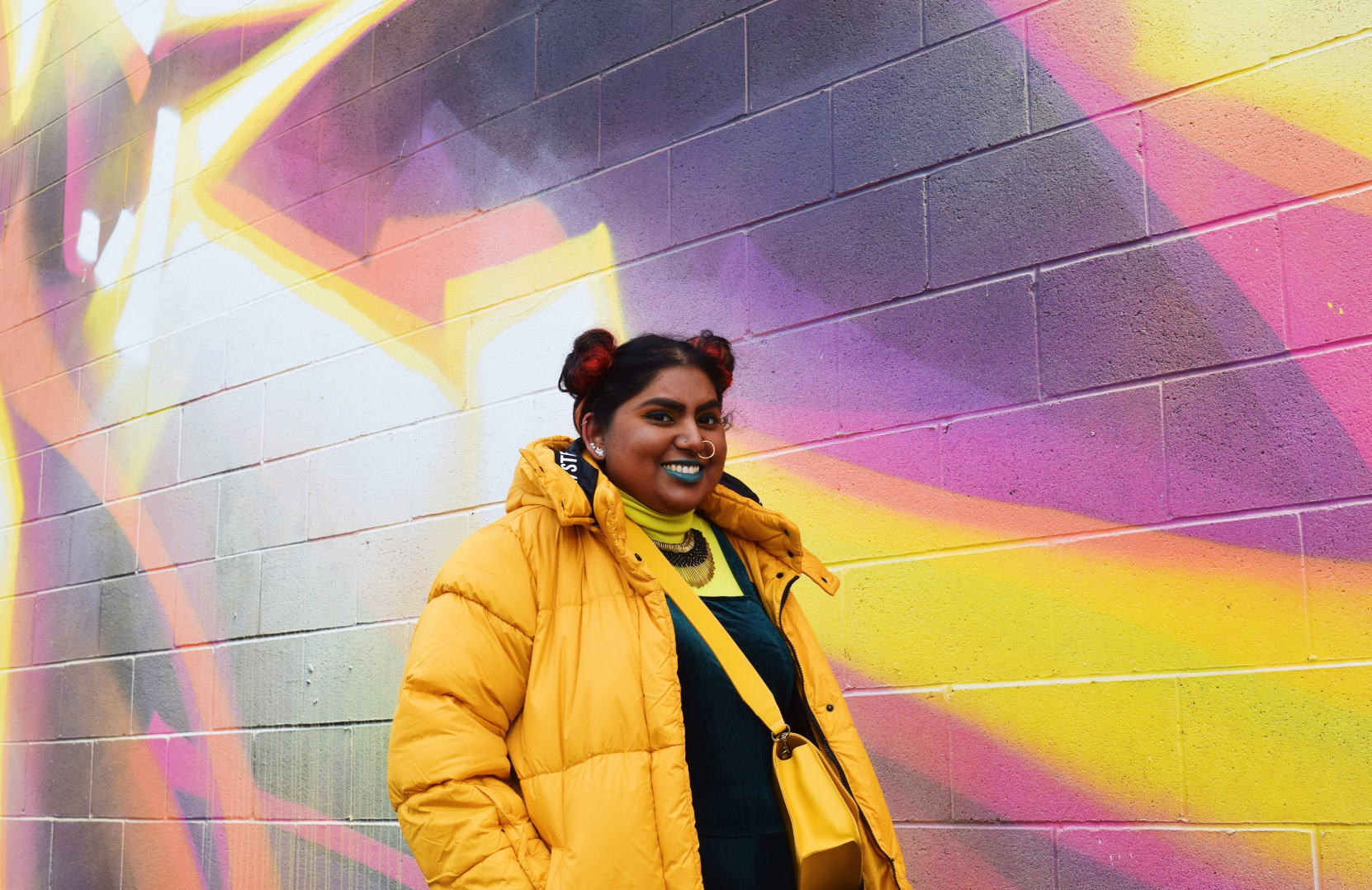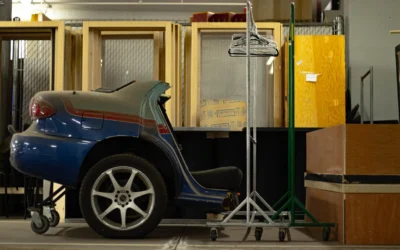Nisha Patel, Edmonton’s eighth poet laureate and award-winning poet, fell in love with poetry a little unconventionally — through performance.
Her introduction to performance and public speaking happened during her eight years as a competitive debater in high school and university, “which is this super nerdy hobby,” she interjects good naturedly. “I just really loved the idea of putting words and thoughts and ideas out into the world for people to engage with.”
But Patel didn’t realize that performance and poetry was something she was really passionate about until she had established herself in an entirely different career path as a political advisor.
Instead of writing speeches for politicians, she wanted to perform herself and share her own stories and ideas. “I actually had something I thought was worth performing and worth talking about,” she says. “And that was my really personal stories and being vulnerable to an audience.”
So, Patel took a leap of faith and left the political sphere behind to explore writing and performing.
“(There’s) a moment when you perform — and if you’re lucky you get that moment all the time — where you know someone is really connecting with you,” says Patel. “It feels almost inexplicable sometimes to rationalize how a person you’ve never met before, or a person whose interior life you don’t know, can understand you — even if you come from completely different backgrounds.
“It turns out (that) almost everyone has something in common with another person. And being a performer means you get to find that connection more often.”
Now, Patel has been writing poetry and working on other arts-related projects for the past five years. She has published numerous poetry chapbooks and her debut poetry book, COCO-NUT; she was a semi-finalist in the 2022 Poetry Slam World Cup; and she served as Edmonton’s eighth poet laureate from 2019 to 2021 — a role that brought considerable visibility and a feeling of being charged to change the world in some way. She tackled this responsibility by writing about COVID deaths, about what justice means, about marginalized groups, about loving the Edmonton arts scene, and about renaming Churchill Square.
“There’s something about poetry in which you really can be really honest and truthful,” says Patel. “It’s my favourite medium because it allows people to imagine the world with you and co-create it without being prescriptively told everything about it, like fiction might.”
As she continues to write, a major theme Patel explores in her work is family, although the stories she explores aren’t always positive. “When you do grow up in multi-generational and intercultural households, there’s such a big disconnect between what your parents might think a good life is and what you think a good life is. And how you both pursue that can often clash.”
Patel also writes about love, kindness, politics, feminism, and the political space around disability.
“I do consider myself disabled — in more direct terms, as someone who is diabetic and has a medical disability in which large parts of my body don’t function the way as everyone else’s. And as… someone with mental illness living within a marginalized body of queerness and being a woman of colour,” says Patel.
“These things all really interact with each other. They’re all the same thing. And disability writing has been a way for me to show kindness to my own body and understand myself, as well as rethink my relationship with the world.”
The path as a poet hasn’t always been easy for Patel. “This year I lost the ability to write with a pencil regularly and to type regularly. And as a writer, that’s super, incredibly difficult to lose that kind of fine motor skill,” she says. “When I do (write), I do it with incredible pain and long periods of recuperation. And so, I’ve had to find new ways to be an artist and be present.”
She feels a strong calling to write about disability in her art so that other people can be let into that perspective and help work for disability justice.
Patel has also come up against mental roadblocks. “It’s so difficult sometimes to even capture the amount of self-doubt that goes into being a writer,” she says. “You don’t feel like you’ve made it for very long, even when you have a success because the writing world is so fickle.”
So much of success as a writer comes from circumstances, privilege, or even dumb luck, says Patel, which means that many incredible writers might never have their work published. And because being a full-time writer isn’t financially viable for the vast majority of writers — Patel included — aspiring writers can easily feel discouraged.
But Patel is quick to point out that there is no one way to be a writer, and that pursuing writing and artistic pursuits means you get to create something you are passionate about and really enjoy, even if that happens part time.
Writers don’t have to write every day or every month or even every year, she says. “You have a body, and you have family, and you have other (responsibilities). And that’s totally OK.”
“There are so many different ways to be a writer and to love writing,” she says. For Patel, embracing an evolving role as an artist and writer has meant creating her first graphic novel, Graphic Medicine, and taking up more photography. She is also in the process of submitting her second manuscript for publication.
For more information about Patel and her latest projects, visit her website nishapatel.ca/ or see what she’s up to on social media (@anothernisha).





0 Comments